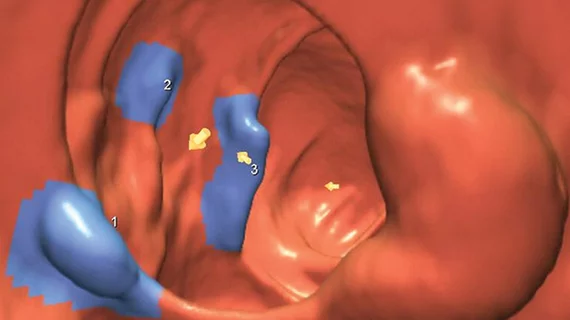AI proves 93% accurate in identifying colorectal cancer
Researchers developed artificial intelligence (AI) software to identify colorectal tumor in histology images.
“Many recent studies have suggested using machine learning techniques to classify, localize, and segment tumor areas in histology images,” wrote author Hongjun Yoon of the National Cancer Center in Goyang, South Korea, and colleagues, in the Journal of Digital Imaging. “Deep neural networks (DNNs) are used extensively to extract and learn features of subjects; DNNs specifically adapted to image data, called convolutional neural networks (CNNs), can effectively classify or locate tumors; however, comparatively few studies have examined CRC using these techniques.”
The AI improved over the 10-day window of the study—reaching a peak sensitivity of 93 percent and a specificity of 92 percent.
Read more at Radiology Business by clicking the link below:

